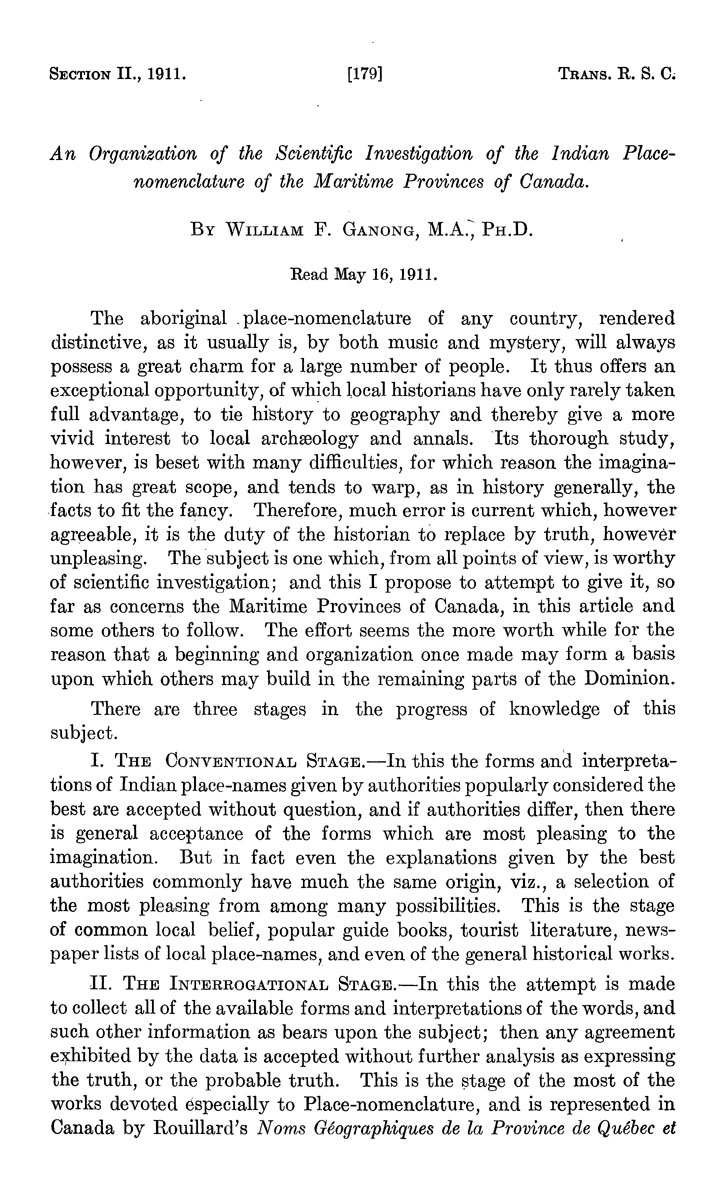Section II., 1911. [179] Trans. R. S. C.
An Organization of the Scientific Investigation of the Indian Place-
nomenclature of the Maritime Provinces of Canada.
By William F. Ganong, M.A.^ Ph.D.
Read May 16, 1911.
The aboriginal place-nomenclature of any country, rendered
distinctive, as it usually is, by both music and mystery, will always
possess a great charm for a large number of people. It thus offers an
exceptional opportunity, of which local historians have only rarely taken
full advantage, to tie history to geography and thereby give a more
vivid interest to local archaeology and annals. Its thorough study,
however, is beset with many difficulties, for which reason the imagina¬
tion has great scope, and tends to warp, as in history generally, the
facts to fit the fancy. Therefore, much error is current which, however
agreeable, it is the duty of the historian to replace by truth, however
unpleasing. The subject is one which, from all points of view, is worthy
of scientific investigation; and this I propose to attempt to give it, so
far as concerns the Maritime Provinces of Canada, in this article and
some others to follow. The effort seems the more worth while for the
reason that a beginning and organization once made may form a basis
upon which others may build in the remaining parts of the Doininion.
There are three stages in the progress of knowledge of this
subject.
I. The Conventional Stage.—In this the forms and interpreta¬
tions of Indian place-names given by authorities popularly considered the
best are accepted without question, and if authorities differ, then there
is general acceptance of the forms which are most pleasing to the
imagination. But in fact even the explanations given by the best
authorities commonly have much the same origin, viz., a selection of
the most pleasing from among many possibilities. This is the stage
of common local belief, popular guide books, tourist literature, news¬
paper lists of local place-names, and even of the general historical works.
II. The Interrogational Stage.—In this the attempt is made
to collect all of the available forms and interpretations of the words, and
such other information as bears upon the subject; then any agreement
exhibited by the data is accepted without further analysis as expressing
the truth, or the probable truth. This is the stage of the most of the
works devoted especially to Place-nomenclature, and is represented in
Canada by Rouillard's Noms Geographiques de la Province de Quebec et
|








